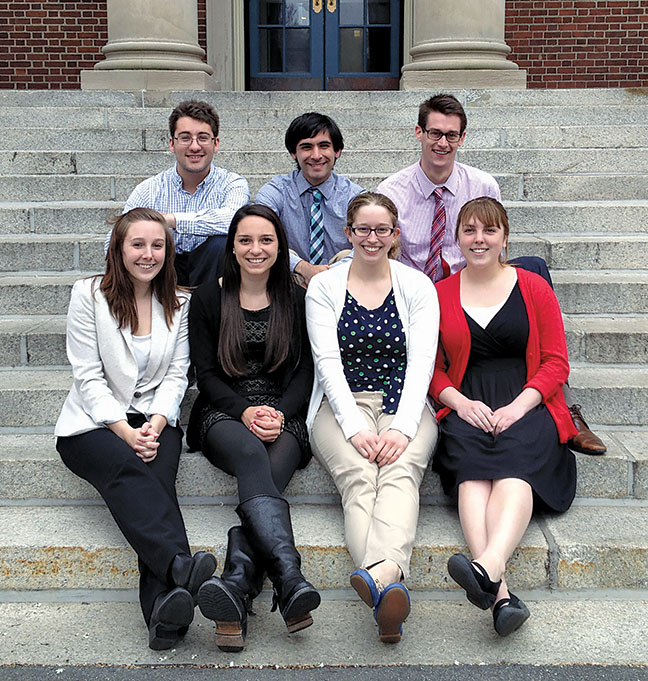Major change

This spring, members of the Class of 2014 received their hard-earned degrees as they do every year, but with one major change. Thirteen graduates who earlier in the year had been education minors were able to leave Wheaton instead with an education major to their name.
Approved at an April faculty meeting, the program change didn’t come with new coursework or additional requirements but rather recognized the serious effort required to complete the course of study.
“We’ve been playing with this idea for years, but what really decided us was when we met with our psychology colleagues and they strongly urged us to do it for a number of reasons, including long-term growth of the department and faculty/student perceptions,” said Professor Mary Lee Griffin, chair of the Education Department.
Education minors often end up completing more coursework as they move toward licensure than other students do for their majors, Griffin said, and the change recognizes that work. The new majors that are offered mirror the previously offered minors in early childhood education, elementary education and secondary education.
“Many of our like institutions are going this route, and we just felt it was time,” Griffin said. “We’re pleased to be able to honor the work that our education students do.”
Though it requires a certain amount of coursework, the education major is not a stand-alone major; students who choose it must also select a second area of study—for example, biology, English or mathematics.
“We feel it’s important for education students to major in another subject so they have depth of knowledge in an area of interest and importance to them, knowledge they bring to their lives as educators,” Griffin said.
The requirement is especially relevant to students who want to teach at the secondary level.
“The state of Massachusetts requires secondary licensure candidates to major in the subject that they plan to teach,” Assistant Professor Scott Gelber said. “[But] I would advocate for maintaining this policy at Wheaton even if it was not a state requirement. It is important for students to have subject matter expertise in addition to pedagogical expertise.”
The five-course education minor is still an option for Wheaton students, one that might appeal to those interested in studying educational topics without plans to become a teacher or individuals interested more in education policy than practice, Griffin said.
Though the major is new, its absence didn’t deter Shoshana Kruskal ’14 from choosing to study education at Wheaton four years ago.
“The wonderful thing about the education program at Wheaton is that it is truly a professional program, something that is so rare at a liberal arts school,” Kruskal said. “In the program, we not only got our degree in education but also took classes that prepared us to pass the MTELs (the Massachusetts Test for Educator Licensure) and had the opportunity to student teach full time, allowing us to graduate with our teaching licenses. The intensity of the program and the emphasis on practical experience, through fieldwork in the classroom, throughout the four years really makes me feel prepared for a career as an educator.”
For Kruskal, the switch from minor to major didn’t change the amount of hard work she had put into the program. But she does see the benefits.
“When asked what my major is, I used to tell people, ‘I study psychology and early childhood education,’ because calling education my minor just didn’t capture all that I have done during my studies of education. Now, it is so nice to be able to say that I double-majored, without a long-winded explanation of the intricacies of the way our program works,” she said.
Kruskal also supports the decision to require a second major along with education.
“Not only is this in keeping with the liberal arts philosophy, but I also found it very helpful as a teacher to have depth of knowledge in another area,” she said.